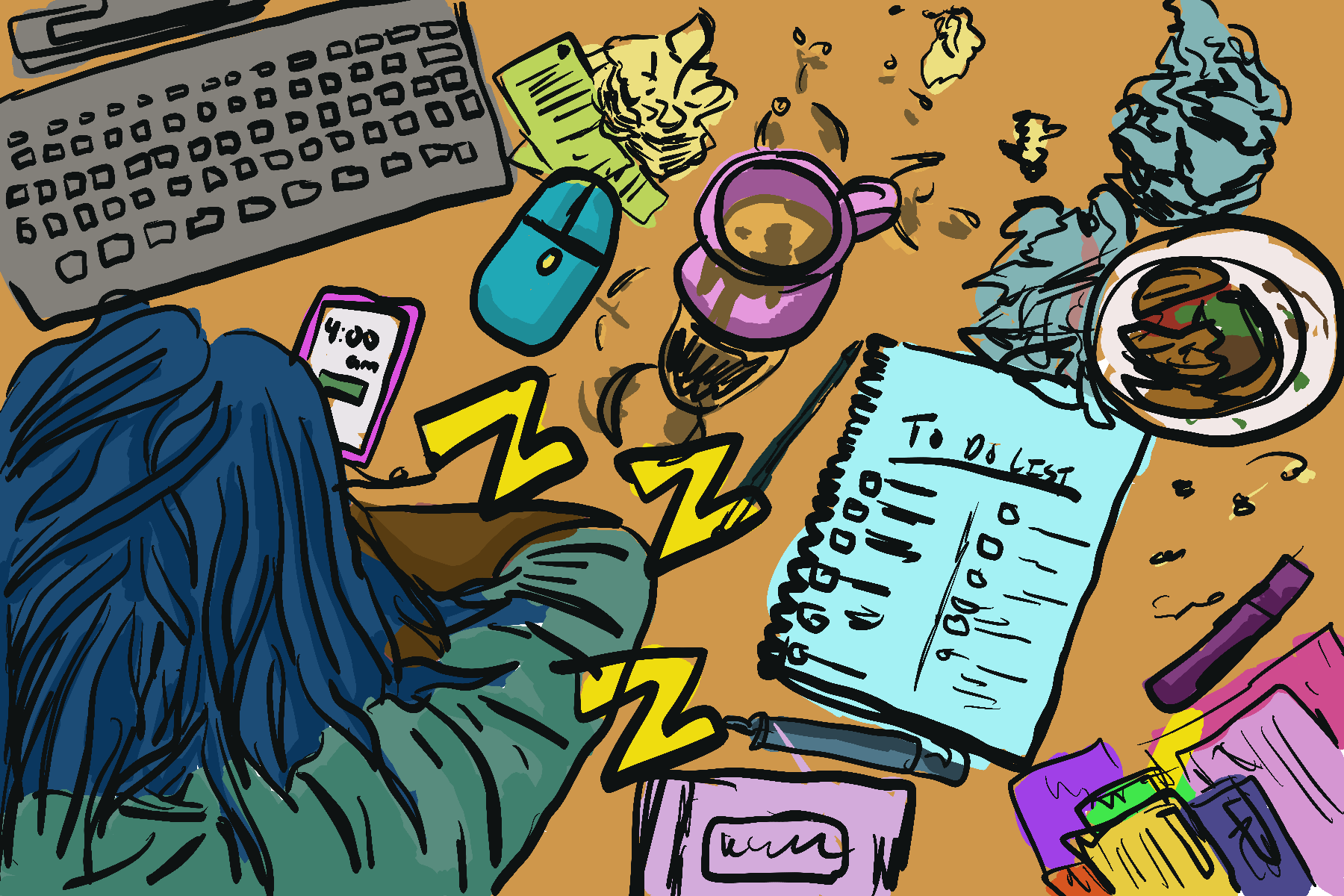We’re all guilty of scrolling mindlessly on TikTok at 2:00 a.m., and if you say you’re not, you’re lying.
We know it’s not good for us, we know we have class in the morning (some of you are unlucky and have 8:00 a.m. classes, ew) and yet we do nothing to stop it. Maybe you try to set your bedtime to 10:00 p.m., but how many times have you tried to do that? More than once, I bet. So, why do we do it?
What is revenge bedtime procrastination?
Revenge bedtime procrastination is a response to feeling like you lacked leisure time throughout the day. That response leads to staying up late at night despite knowing the consequences you’ll encounter the next day, taking “revenge” on daytime hours. People enjoy immediately-gratifying activities, like watching TV, which makes it easy to choose that over proper rest. The concept originates from the Chinese expression, 報復性熬夜 (bàofù xìng áoyè), which roughly translates to revenge bedtime procrastination, and has resonated with many people worldwide. Students may find themselves experiencing revenge bedtime procrastination to the point where it’s not even a bad habit. Instead, it’s a part of their lifestyle.
Why is sleep so important anyway?
Dr. Patricia Carter, a University of Texas at Austin School of Nursing Associate Professor and healthcare professional, hosted a university lecture series in Spring of 2019 called “Sleeping Your Way to Academic Success,” in which she broke down the effects of a well-rested mind, the consequences of a sleep-deprived brain and the different types of sleep. Dr. Carter focuses on how sleeping habits affect academic performance, and memory.
But you can just pull an all-nighter tonight and sleep-in tomorrow, right? Wrong! Not sleeping decreases focus and attention and weakens our memory.
Dr. Carter pointed out “sleep deprivation… impaired learning as much as 40% even after two ‘recovery’ nights.” Recovery nights are the nights you try to ‘fix’ your sleep schedule after breaking away from it. Now you can blame your failed midterms on that all-nighter you pulled before the exam.
That means my naps are useless, right?
Wrong again, get it together! A good 20-minute power nap will give you 12 hours of increased functionality compared to not napping. One nap and one night of sleep are equal to the improvement seen after two nights of sleep.
However, make sure your naps aren’t too long or too short. A 45-minute nap is too long and makes waking up harder since you’re right in the middle of a deep sleep, but 60-90 minutes is a good amount of time because it’s closer to a full-sleep cycle.
Basically, the next time your alarm wakes you up 45 minutes into your nap, ignore it and go back to sleep for another 15-30 minutes. Send your professor this article if need be.
How do I stop?
The first step to recovery is admitting you have a problem. If you previously said you’ve never scrolled mindlessly on TikTok at 2:00 a.m., now is the time to tell the truth.
All jokes aside, here’s what Dr. Carter suggested:
- Turn your blue-light devices off
- Find your optimal sleep time, which is the amount of sleep you get when you wake up naturally and feel refreshed. I literally cannot remember what that feels like, but I know it feels good.
- No caffeine after 3:00 p.m. (I’m the exception though)
- Get eight to ten hours of sleep, and nap if you don’t get enough sleep
- Sleep in a cool, dark room with minimal noise
- Stay consistent with your sleep schedule
- Exercise in the morning
Revenge bedtime procrastination is counterproductive. While you’re gaining satisfaction from the activity you are performing, that satisfaction only lasts so long before you begin to feel the negative effects. Take some time to look at what things stress you out the most and address them. Learn to manage your time and prioritize sleep. Although it isn’t on purpose, revenge sleep procrastination is a structure we’ve individually created in our lives that’s preventing us from succeeding.
We’ve all wished we could’ve had those five extra minutes of sleep. Give yourself the time and grace you need to unlearn the behaviors associated with this phenomenon. Next time it comes to the question of whether to sleep or not to sleep, choose sleep.
Featured Image By Bettina Mateo
